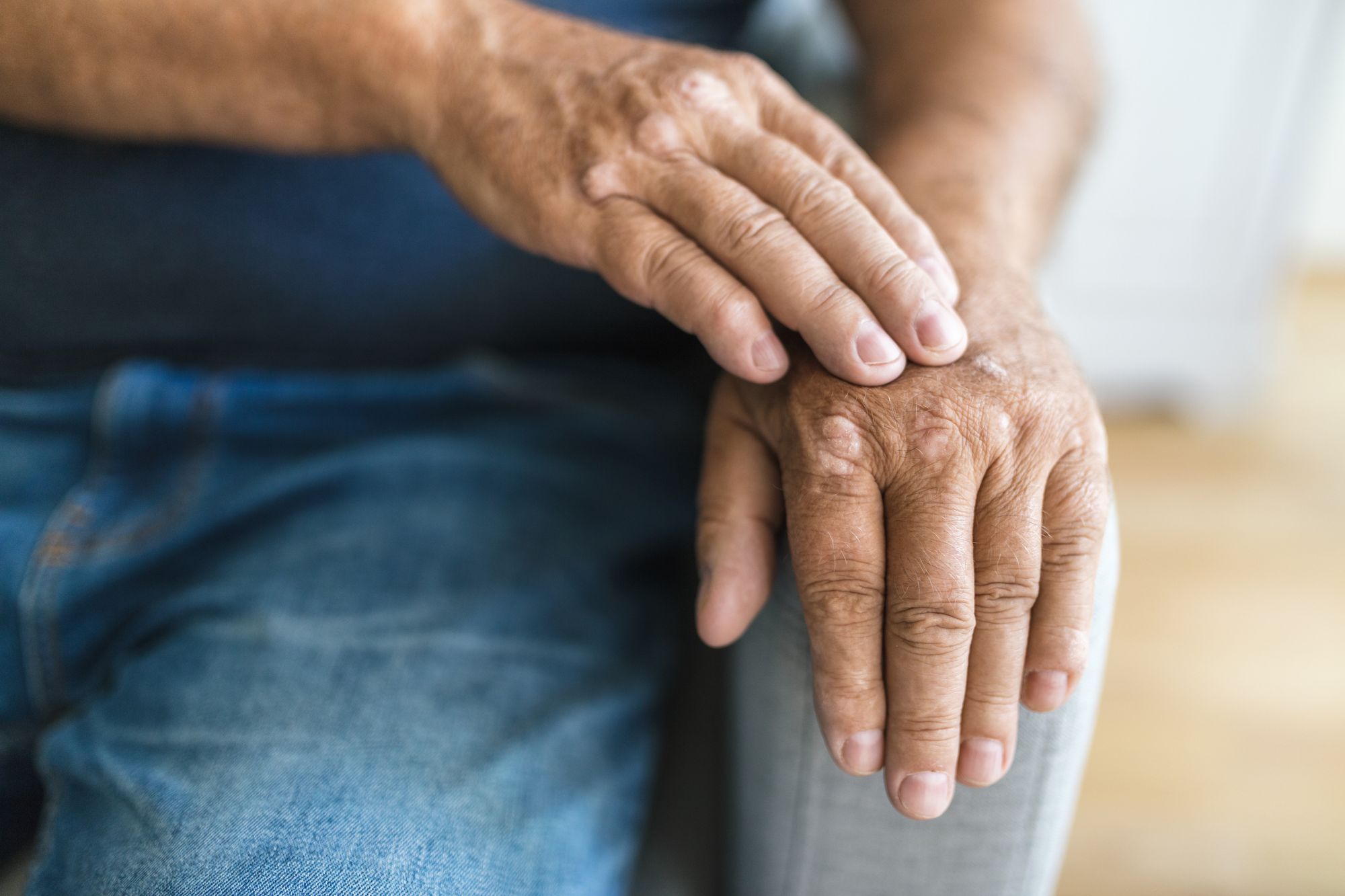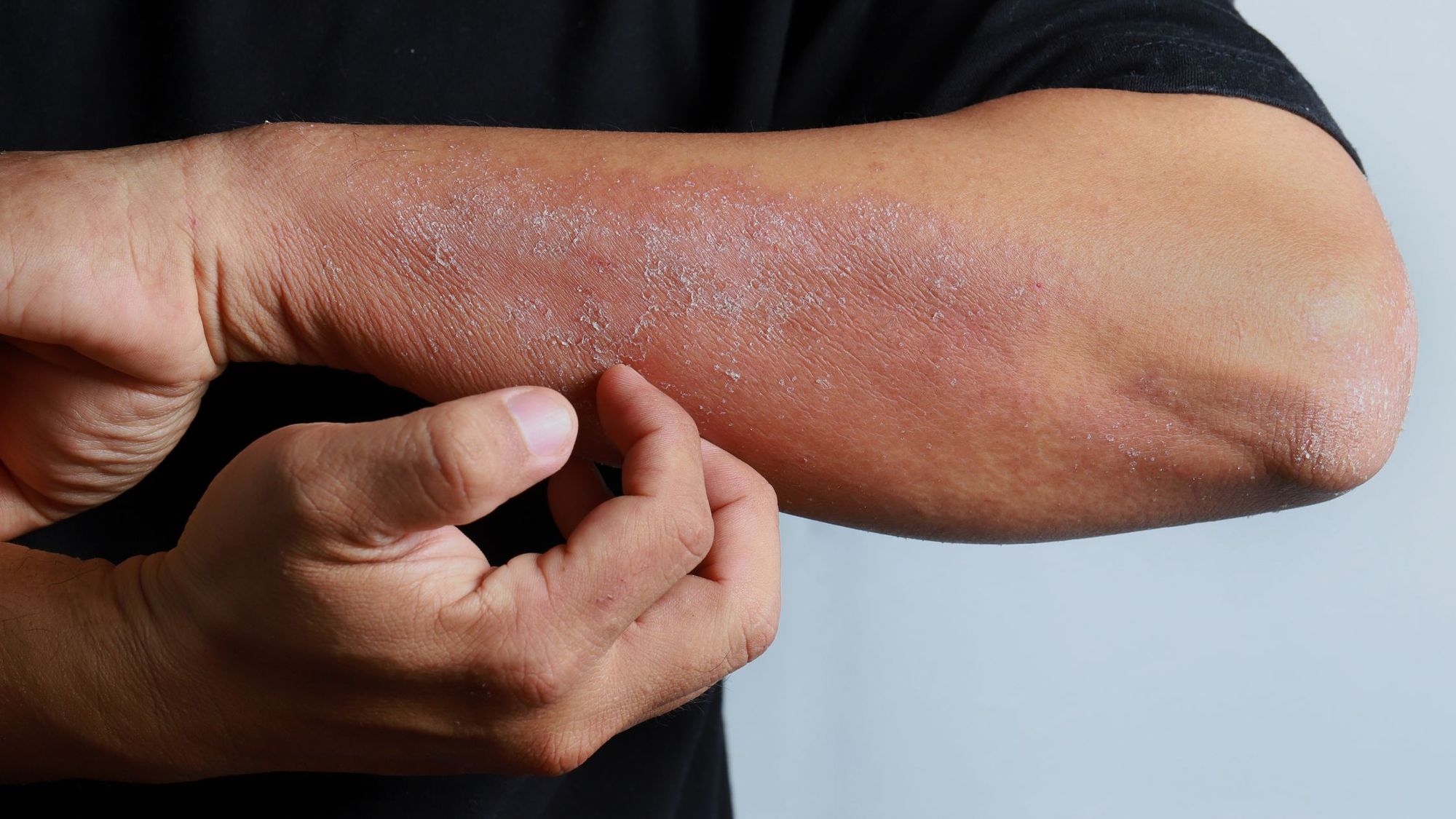
When it comes to psoriasis vs eczema, it’s important to understand that psoriasis and eczema are two very different skin conditions that often have similar symptoms.
If you have dry, itchy, red or inflamed skin, you’ve probably tried different soothing lotions and creams to soothe your skin. However, if you can’t calm your skin no matter how hard you try, these chronic symptoms could be a sign that you’re suffering from a medical skin condition. Eczema and psoriasis are both medical skin conditions that have shared symptoms of skin dryness, inflammation, and itchiness. Without a professional diagnosis, it can be easy to confuse these two health conditions.
Despite often having similar symptoms, there are different treatments for each of these skin conditions, and they also often have different causes – as well as different environmental triggers for outbreaks or flare-ups.
Psoriasis vs Eczema: Underlying Causes
Both psoriasis and eczema can be caused by your genetics and can run in families. However, psoriasis is thought to be caused by an immune system problem, where healthy skin cells are attacked by mistake. This immune system problem also causes skin cells to grow much faster than normal, and dead cells build up on the skin’s surface causing thick and rough patches or skin. Skin cells pile up atop each other, resulting in white or silvery scales (this is one of the psoriasis distinctive features). Psoriasis can be made worse by certain environmental factors. For example, an injury to the skin can cause a bad psoriasis outbreak. This includes severe sunburn, bug bite, cut or scrape. Drinking excess alcohol and smoking cigarettes can also cause psoriasis outbreaks.
Eczema, on the other hand, can be both traced to (and made worse by) environmental triggers, and has a strong genetic link. Certain climate and exposure to pollutants affect people with eczema, making their symptoms more severe. Causes of eczema can be traced back to allergens in the patient’s environment, irritants, microbes, climate temperature, stress, hormones, and even certain foods.
Since treatment for psoriasis vs eczema is different, knowing whether you have eczema or psoriasis is crucial.
Fortunately, both skin conditions are not contagious but they could escalate to skin infections. It’s easy for a dermatologist to spot the differences between eczema and psoriasis, but it may be hard for your untrained eye.
First, we’ll go over the basic definitions of both eczema and psoriasis. Then, we’ll explain various ways how you can these two skin conditions apart, so you can seek the right treatment for psoriasis vs eczema:

What is Psoriasis?
Psoriasis is a chronic skin disorder that causes a skin rash with itchy, scaly patches on various parts of the body. It’s most commonly found on the elbows, knees, scalp and torso.
This skin disease causes skin cells to multiply up to 10 times faster than normal, resulting in the symptoms mentioned above. It is not contagious.
While eczema can occur at any age, the onset of psoriasis is more common in adults.
Psoriasis is a chronic skin disease that has no cure, but it can be managed.

What is Eczema?
Eczema is an inflammatory skin condition with some similar symptoms to psoriasis. Also referred to as ‘Atopic Dermatitis’, eczema is a common skin condition that causes itchy, dry, inflamed skin and skin rashes.
Eczema can occur at any age, even in children, and it can flare up and become very irritating and uncomfortable, but it’s never contagious.
Eczema often appears all over the body, and there are also many different types of eczema.
Do You Have Psoriasis or Eczema? How to Tell the Difference
We know that psoriasis and eczema have some similar symptoms such as skin rash, rough skin and itchiness, they’re both skin conditions, and they’re both chronic (long-term) conditions. Furthermore, neither condition is contagious, but both can lead to infection.
Below are some ways to tell the difference between psoriasis vs eczema:
Key differences in itchy levels
When it comes to identifying psoriasis vs eczema, a key factor is the severity of the itchiness. Psoriasis tends to have milder itching than eczema. At times, it could feel like a burning sensation. In contrast, eczema can have a much more severe or intense itch, so patients typically find it harder to resist scratching.
Location on your body
Eczema tends to appear all over the body, while psoriasis favors certain body parts. For example, psoriasis is more common on the knees, elbows, torso, scalp, genitals, palms and feet. Eczema can occur in these areas, but also in many other areas.
Onset of the disease
Usually, eczema manifests in very young children, and some could eventually outgrow it. At times, adults can still show symptoms of eczema in their advanced age. Meanwhile, psoriasis typically manifests in young adults and older people. And since psoriasis is an autoimmune disease, it is a chronic, lifetime condition..
Sunshine exposure
For people who suffer from psoriasis, exposure to sunlight could ease their symptoms. Exposure to UV rays slows down the abnormal growth of skin cells. On the other hand, people battling eczema find it harder to tolerate hot weather. The constant sweating could still lead to a skin flare-up.
If you’re not sure what kind of rash you have, it’s best to consult a board-certified dermatologist, who is a doctor specializing in skin conditions. With proper diagnosis, you can get the appropriate treatments or management program.
Are You at Risk of Developing Eczema or Psoriasis?
Your chances of developing eczema and psoriasis are higher if you have a family history of the disease. Changes in genes or mutations which are passed on from generation to generation suggest that genetics plays a role in the formation of symptoms. Research suggests that mutations in the genes that control a specific protein helping the body maintain a healthy layer of the skin lead to eczema. When the protein levels are abnormal, this unbalanced state changes the skin barrier and allows moisture to escape. As a result, it leads to fragile skin that is more susceptible to triggers, especially those coming from the environment.
Both psoriasis and eczema can be caused in part by environmental factors. For example, if you live in a part of the world with extreme weather conditions such as very cold weather and very hot weather, that in itself could increase your risk of these skin conditions.
Exposure to certain things in the environment may trigger the immune system to change. Some of these may be air pollutants, smoke, fragrances, soaps, and the like. Normally, the immune system wards off illnesses like viruses and bacteria. However, when the immune system changes due to external factors, it could result in skin inflammation, inhibit the skin barrier, and force the skin to become more dry.
If you want to confirm your genetic risk of skin conditions like psoriasis and eczema, and also learn more about other genetic skin traits, you can take a CircleDNA test. This comprehensive DNA test reports on your genetic predisposition for certain skin conditions, and your genetic risk of various other health issues. Reports also include your susceptibility to certain allergens. Apart from that, it provides nutritional reports that could help you avoid sensitivities that could result in flare-ups. A comprehensive test like this will help you understand your body and give you an advantage when it comes to preparing for and mitigating potential health problems
References:
- Atopic eczema: genetics or environment? https://pubmed.ncbi.nlm.nih.gov/18247450/
- Pathogenesis and clinical features of psoriasis https://pubmed.ncbi.nlm.nih.gov/17658397/






This Post Has One Comment
Comments are closed.